Why did machete violence erupt on a city seafront?
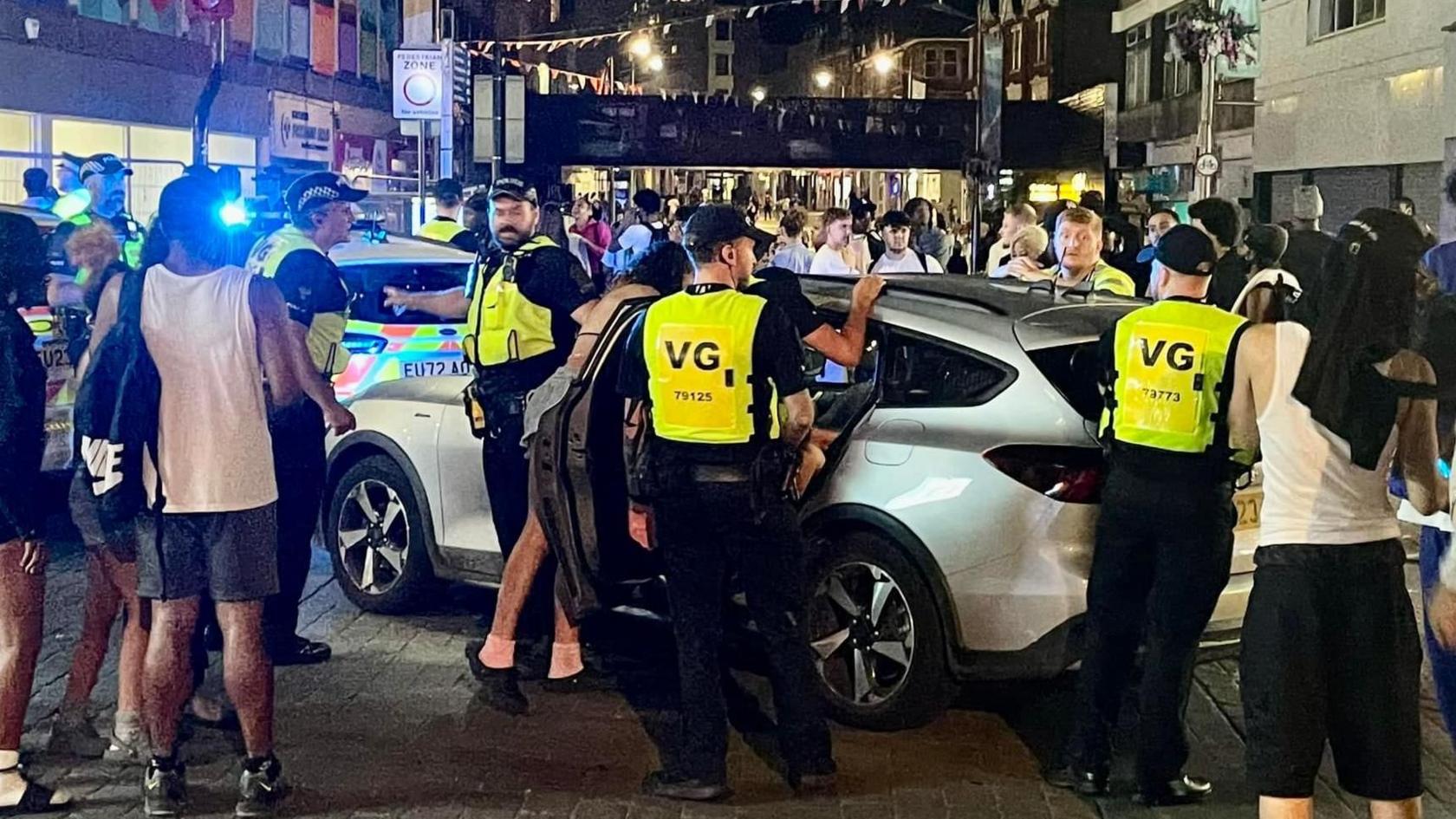
Some revellers responded to an invite to a "beach rave" on social media
- Published
Police officers, MPs and traders have all condemned violent scenes after "two rival gangs" fought with machetes on a seafront.
Footage showed men fighting with large blades by the beach and high street in Southend-on-Sea on Tuesday evening.
It was the latest in a repeated line of summer disorder in the Essex city, which last year saw an invite to "get lit" on the beach turn violent.
But how - and why - did this year's clashes happen?
'Postcode wars'
Southend-on-Sea has been informally known as "London's beach" due to its proximity to the capital's East End.
In just under one hour, commuters can get from Fenchurch Street to Southend Central and with it, the sand.
Video shows armed men fighting in Southend
Families and children flocked to the beach on Tuesday as it became the hottest day of the year so far.
But among those attracted to the resort were people enticed by an invite to a "beach rave" which had circulated on social media.
Those in attendance were encouraged to bring alcohol, drugs and nitrous oxide.
There is no suggestion the violence was committed by those who came to the beach to rave.
The BBC understands that of those who were involved in the subsequent violence on Tuesday, about two-thirds came from London.
A council official, who remained anonymous, said people had been "enjoying themselves" at the beach throughout the day.
"As the day developed, there were two rival gangs and that's where it broke out," they told the BBC.
"It was London postcode wars spilling out on the streets of Southend."
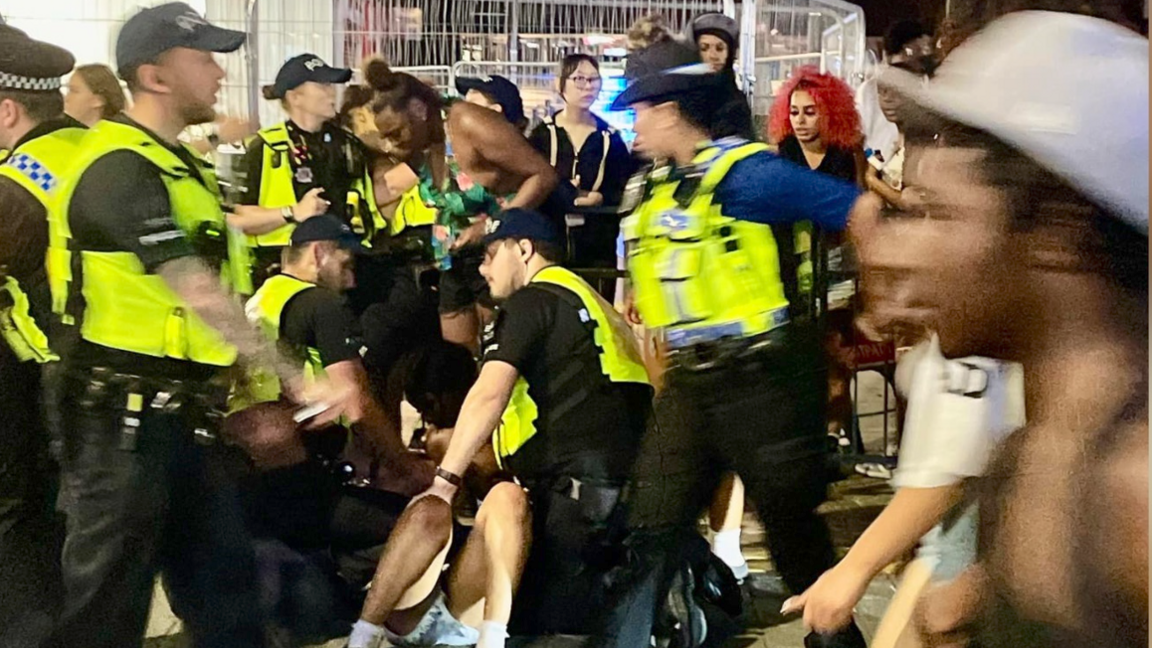
A man was airlifted to the Royal London Hospital after he was stabbed on Tuesday
Eight boys and men were arrested on suspicion of violent disorder as a result of the fracas that broke out from about 19:00 BST.
A video appeared to show at least four people dressed in black and brandishing large knives near the Adventure Island theme park.
A man was later airlifted to the Royal London Hospital after being stabbed.
Ch Supt Leighton Hammett, of Essex Police, said officers had "information passed" to them about the potential for trouble.
"But it certainly wasn't information passed around drugs or weapons being brought here," he added.
Bayo Alaba, the newly elected Labour MP for Southend East & Rochford, said he also understood those involved in the ugly scenes had not been from the area.
He called for co-operation between police forces to prevent troublemakers spilling off the trains and creating problems.
"[I want to ensure] we do not suffer from a minority looking to bring violence and trouble," Mr Alaba said.
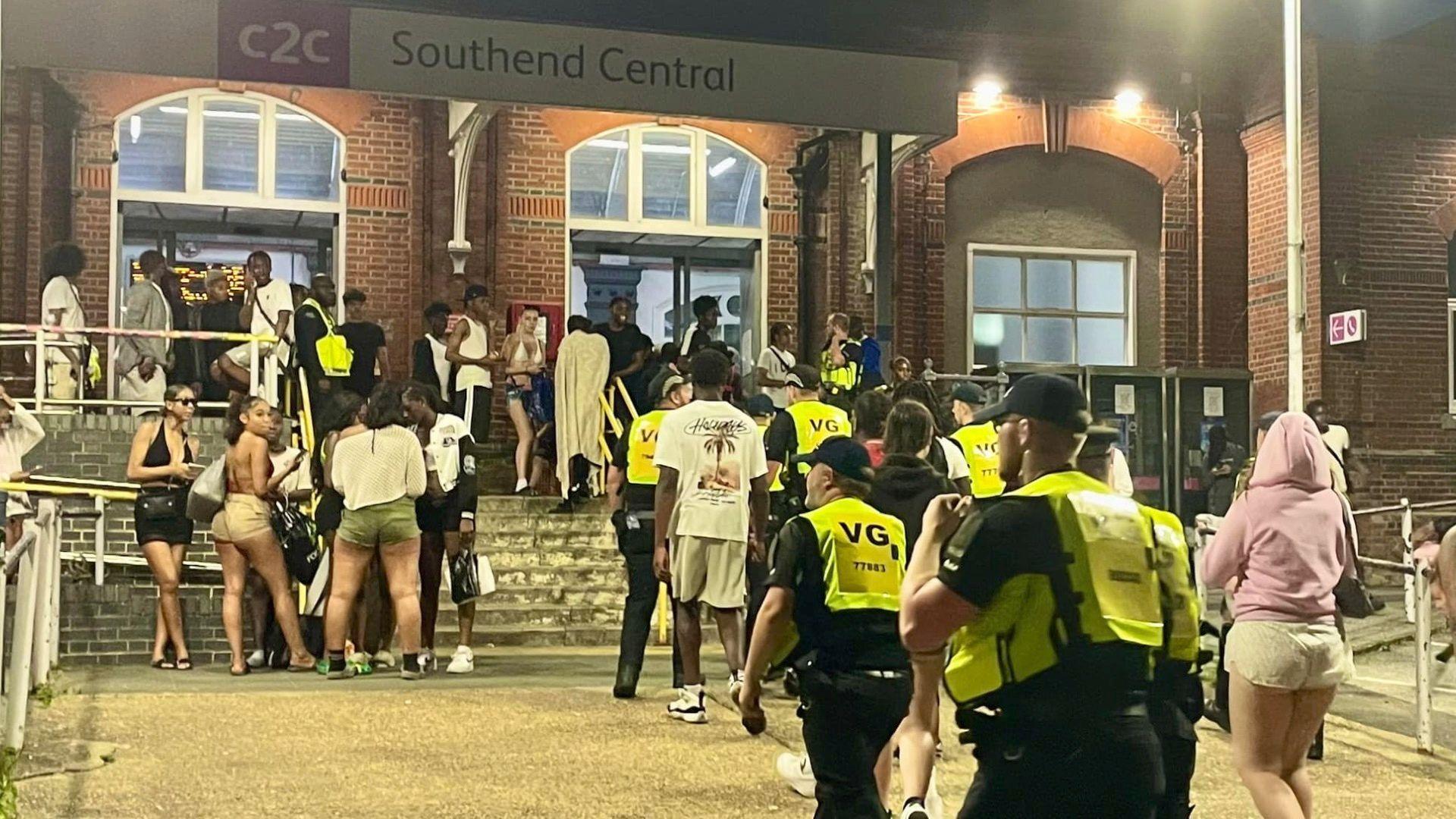
There was a heavy police presence at Southend Central railway station
The Labour leader of Southend-on-Sea City Council, Daniel Cowan, added that train operators should also remain extra vigilant.
"[We should have] the ability to stop people at source or turn them away at the earliest point possible to avoid incidences before they break out," he said.
Summer trouble returns
Police were granted extra stop and search powers via a dispersal order ahead of Tuesday evening, and later extended them until Friday afternoon.
It mirrored similar action taken in both summer 2022 and 2023 ahead of anticipated aggravation.
Last August, an emergency worker was allegedly assaulted before a social media invite to "get lit" on Southend beach attracted large crowds.
The year before, police ramped up their presence on the seafront after two people were stabbed.
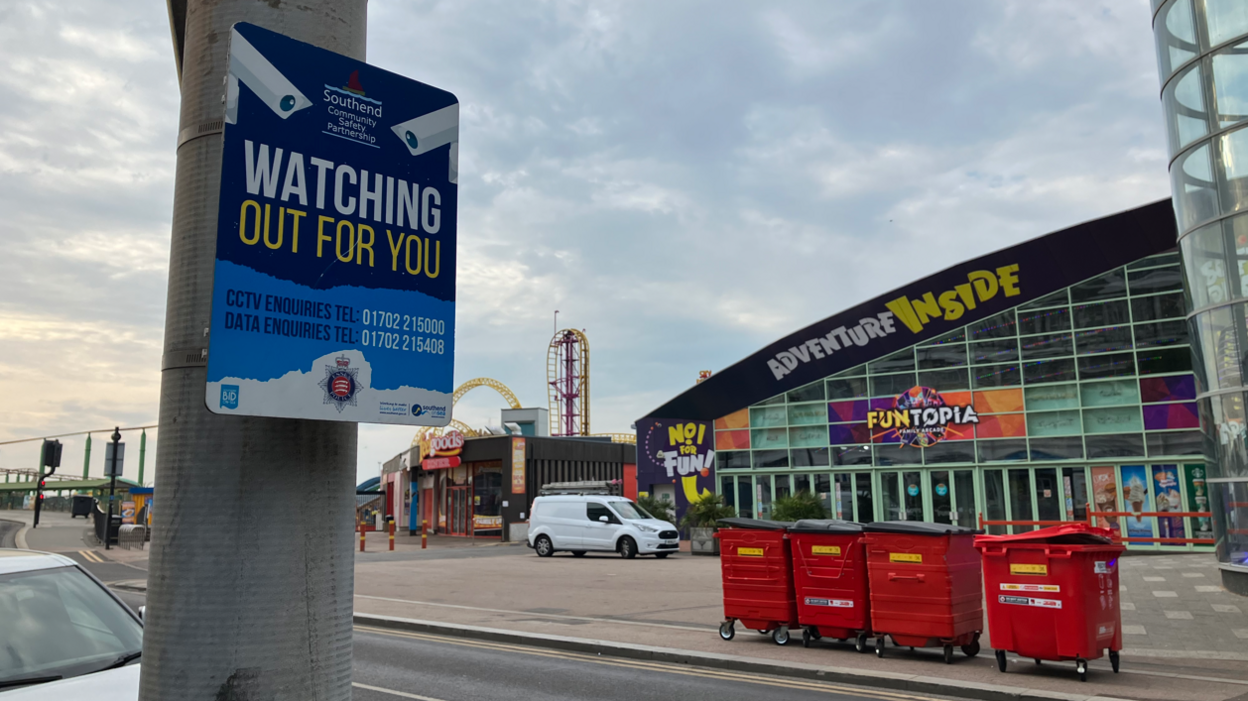
The police maintained a presence in Southend overnight on Tuesday but the scene appeared calm on Wednesday morning
Mr Alaba warned there appeared to be a "pattern" of violence in the city during the summer months.
"Something happened last year and it's happened again, so in my mind that's a bit of a pattern," he said.
In an update on Thursday afternoon, Essex Police said it was ready to tackle any future disruption.
"If you’re planning to bring weapons, drugs, or carry out violence you’ll be met by officers and dealt with," Ch Supt Hammett added.
Get in touch
Do you have a story suggestion for Essex?
Follow Essex news on BBC Sounds, Facebook, external, Instagram, external and X, external.
Related topics
- Published1 August 2024
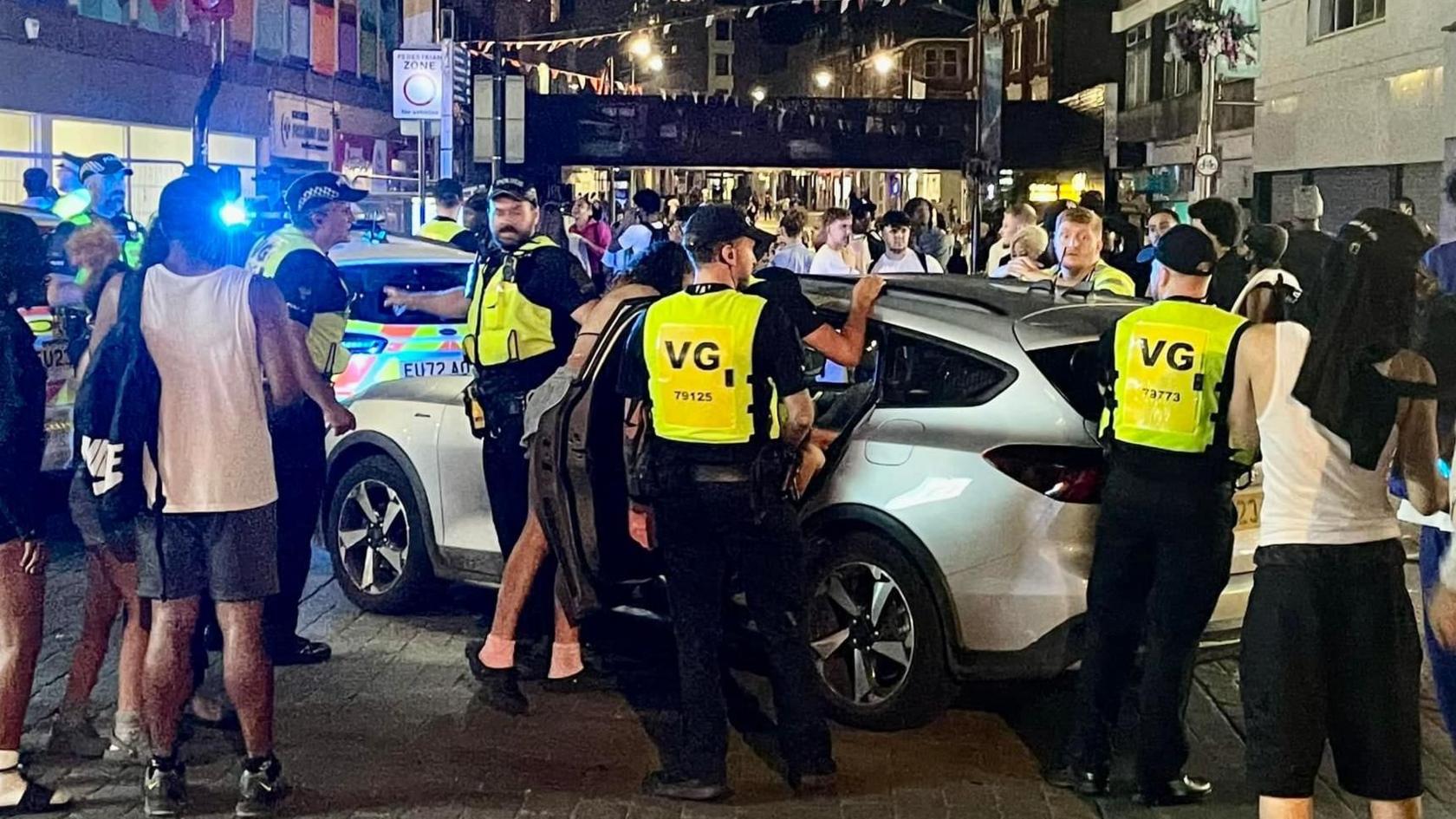
- Published1 August 2024
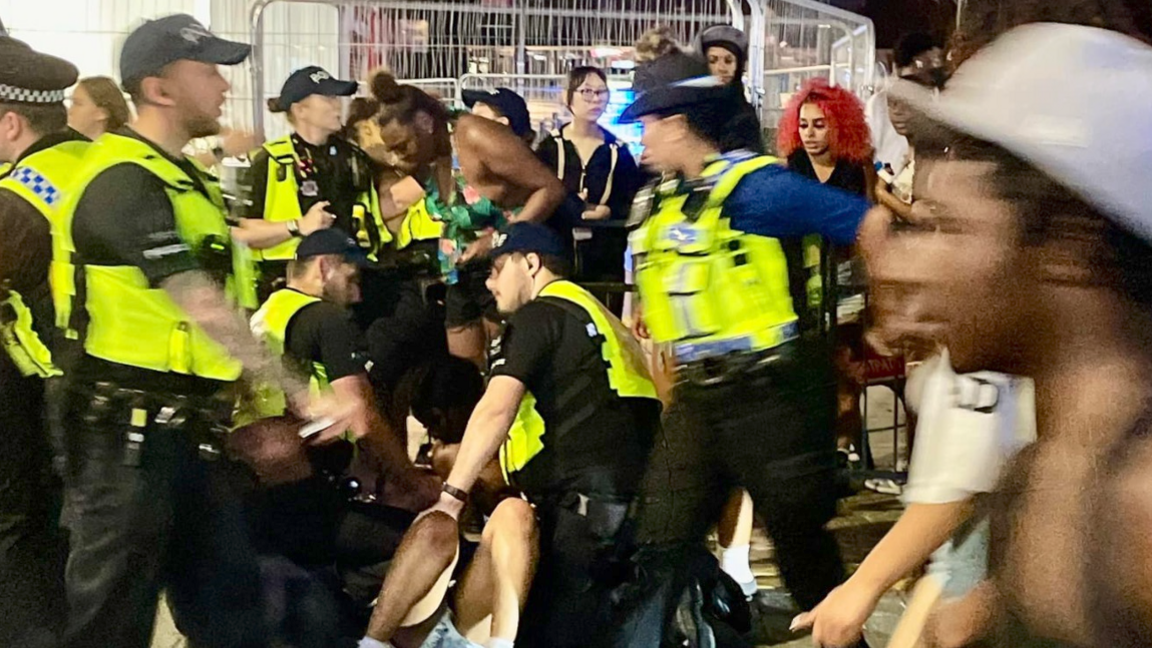
- Published31 July 2024
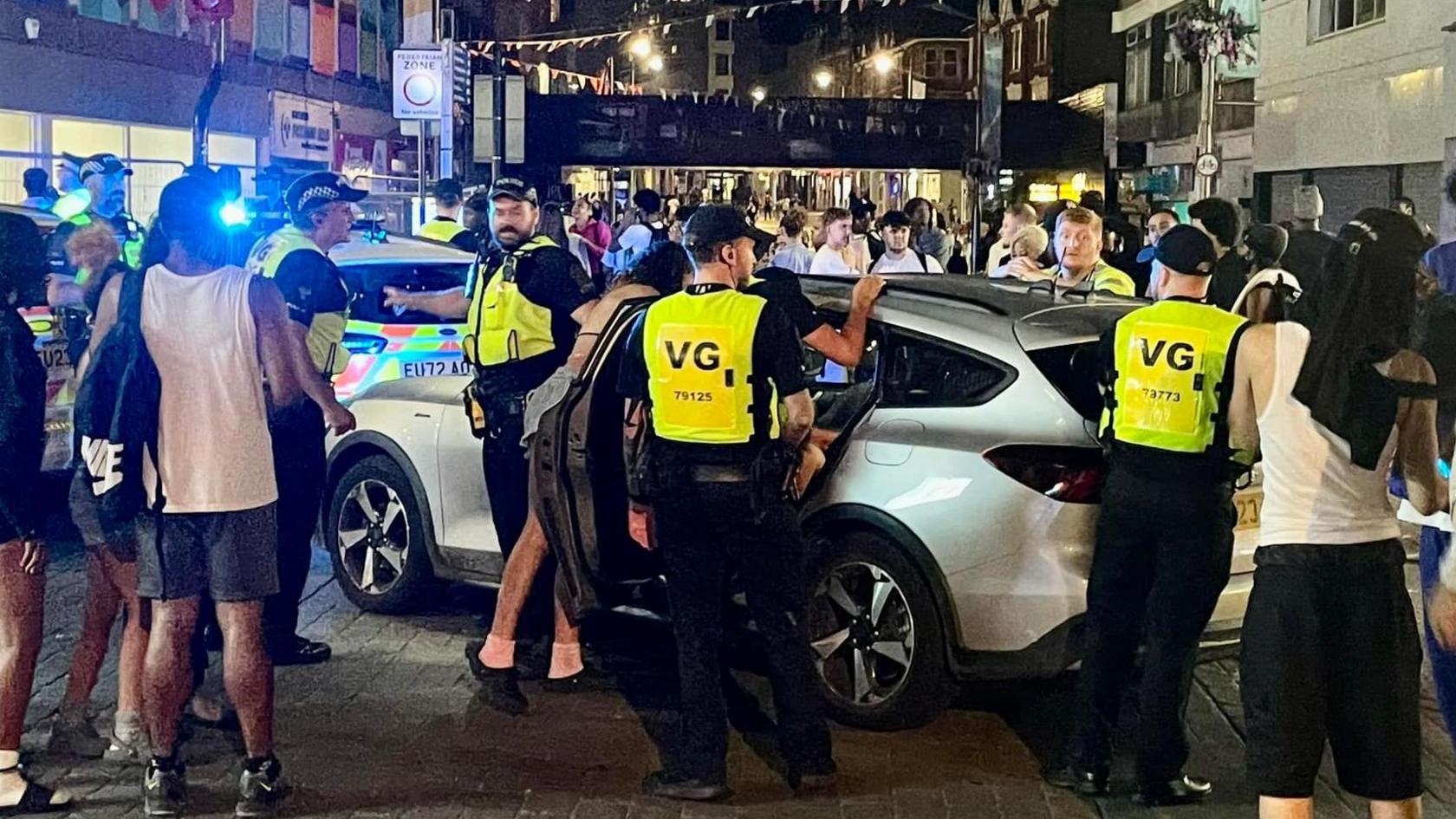
- Published31 July 2024